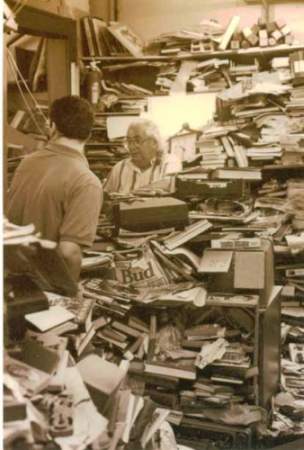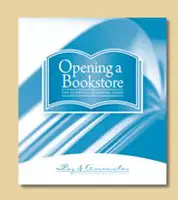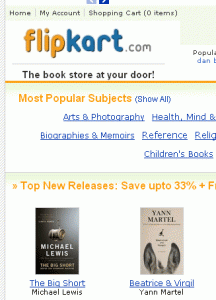Laura Jenkinson (Jenks) first shared her idea in her introductory post: Bookselling, it’s in the bone
What ‘type’ of bookseller are you?
While in the process – the *slow* process might I add (to update you, I am still waiting around for the bank which, after fourteen days, hasn’t processed my Business bank account because it hasn’t even received my painstakingly completed paperwork through the post yet, meaning Royal Mail have probably ‘lost’ it, meaning I have to start again with photocopying and interminable waiting…ugh…) – of starting my bookselling venture, every person I’ve told about it has been amazingly positive. They are all convinced that what the world needs now is more small bookshops. And, in order to get a handle on what mine will be like, they immediately want to know what kind of bookseller I will be.
I’m coming from the teaching profession, and in my experience everyone thinks they know teachers having sampled a whole range of teaching personalities through their learning career at primary and secondary school, sixth form and University. To prove this point, every stand-up comedian’s show I have ever been to has featured a joke about a teacher (I am a redhead too: I don’t come off well at comedy shows in the UK where ‘gingerism’ is an accepted prejudice and, variously, art form) and everyone laughs because no matter what type of teacher being described, they have experienced it and can identify. It’s not quite the same with booksellers: sadly for the majority buying a book is now akin to visiting the supermarket, a face at a till. Even librarians have a more recognisable stereotype. When I’m explaining my venture it’s immediately obvious I’m not going to be a face at a till, nor am I a ‘crazy old cat-spinster librarian’ (let’s face it, that’s the only stereotype), so those I have spoken to have normally applied their own ‘type’ ideas in their immediate reactions to my news. I have compiled the most popular species contained in these reactions here for your pleasure and, probably, knowing smiles.
Now, those more literary-minded or who are booksellers themselves would possibly have reacted by mentioning Helen Hanff’s enterprising letter-writing Antiquarian at 84 Charing Cross Road, Sylvia Beach’s original Left-Bank Shakespeare and Co. in Paris or the ‘socialist utopia’ version of George Whitman’s, as immortalised in Jeremy Mercer’s memoir ‘Time Was Soft There’(US)/’Books, Baguettes and Bedbugs’(UK). Maybe even Arturo Pérez-Reverte’s antihero Lucas Corso from ‘The Dumas Club’, especially when remade as Polanski’s fantastic The Ninth Gate starring Jonny Depp – the Indiana Jones of Antiquarian Bookselling
http://www.youtube.com/watch?v=9T5mhtHf8T4&feature=related
But I don’t seem to have talked to anyone like that, my friends for the most part representing the majority of people who prefer a tangible stereotype that’s been in the wider media.
(warning: there are numerous UK references in this post. I have included visual references for your education)
Option 1) The Bernard
 Over here, the first type people think of is The Bernard (reaction: “Oh! You’re going to be just like Bernard!” or “Oh, like Black Books?”) You might not have Black Books over there, the excellent and cultishly popular (meaning that intelligent people like it because it’s witty) 3-series sitcom written by Graham Lineham (Father Ted? No?) and starring Dylan Moran (you’ll know him, he’s been in … films) as Bernard Black, the Irish, book-reading, wine-swilling misanthrope who doesn’t really like customers. Or selling books. Here’s a quick guide to Bernard courtesy of YouTube:
Over here, the first type people think of is The Bernard (reaction: “Oh! You’re going to be just like Bernard!” or “Oh, like Black Books?”) You might not have Black Books over there, the excellent and cultishly popular (meaning that intelligent people like it because it’s witty) 3-series sitcom written by Graham Lineham (Father Ted? No?) and starring Dylan Moran (you’ll know him, he’s been in … films) as Bernard Black, the Irish, book-reading, wine-swilling misanthrope who doesn’t really like customers. Or selling books. Here’s a quick guide to Bernard courtesy of YouTube:
httpv://www.youtube.com/watch?v=B3tFEoWNv50
Now, when faced with this reaction I always immediately counter-describe myself as ‘The Anti-Bernard’, because I am female, Irish, will probably provide better, if not actual, customer service, and will not drink on the shop floor unless it’s been a really, really bad day. This is because I would like people to think well of me, and retain their custom. However, really I idolise Bernard. He has no cares. As long as he is reading (or drinking), his life is fulfilling. He seems to have no interest in sales figures, Nielsen book data and whether he should take debit and credit cards, and neither does he practise the art of replenishing stock, selling non-book product, or even marketing, those niggly things necessary to keep afloat. And even though he’s such an unapproachable so-and-so, he still has customers and has *somehow* managed to acquire large commercial premises in the heart of Bloomsbury including storage, kitchen, toilet facilities and residential apartments above. Currently I am still struggling with my business plan and figuring out how on earth to raise the not insubstantial amount of capital I need to put down a six-month rental deposit on a premises and buy in my first shopful of stock. If Bernard had had to do this, he would have immediately given up and gone back to the pub.
Option 2) The Evan
Read more



 Quite by accident, a couple of years earlier, I had found this magic-faraway-tree kind of bookstore at Central Arcade, where a tiny lady sat behind a tiny desk. She had a captivating charm that was surpassed only by her knowledge of books: she could talk about any book under the sun. Well, almost. Of course, she knew every book she had on her shelves and rare was the walk-in who left without a bagful of books. Her eyes shone and twinkled whenever we talked about her favourite authors and, as we became friends, I picked up a rudimentary understanding of how the book trade worked.
Quite by accident, a couple of years earlier, I had found this magic-faraway-tree kind of bookstore at Central Arcade, where a tiny lady sat behind a tiny desk. She had a captivating charm that was surpassed only by her knowledge of books: she could talk about any book under the sun. Well, almost. Of course, she knew every book she had on her shelves and rare was the walk-in who left without a bagful of books. Her eyes shone and twinkled whenever we talked about her favourite authors and, as we became friends, I picked up a rudimentary understanding of how the book trade worked.